Quitting A Habit!
![]()
QUITTING A HABIT! (ISSUE 118)
By Diane Gold
Quitting a habit! Quitting is such a simple word. It has two very different connotations, although they both mean the same thing. It means the act of stopping doing something. But, in our minds, it usually refers to stopping our current job or ceasing our current habit. We will focus on the habit.
PSYCHOLOGICALLY HELPFUL?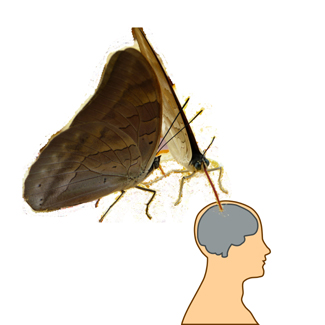
When we use the word “quitting” for the cessation of a habit, it conjures up the image of life being sucked out of our bodies. Even thinking about stopping a habit feels as if we are going to lose something instead of gain something. Psychologically, these concepts direct our actions, so they are not just semantic observations that only have intellectual use. When we see we are going to get something; it can cause pleasure, and we are more likely to move toward it. On the other hand, when we are going to lose something; it can cause pain and we avoid it.
That’s why it’s much more advantageous for us to use the correct word and one that is more pleasing to our psyche: replacing. When we replace something, we maintain a feeling of abundance. This keeps us balanced and happy.
THE TRUTH
The truth is this:
ONCE A HABIT, ALWAYS A HABIT.
This is not a bad thing, so please, let’s hold onto our hats and rejoice! It’s a reality that when we respond to an urge for something over and over again, it becomes a habit.
And, once we have learned it, we usually do not unlearn it. What we do accomplish is we replace it. And this is the interesting fact.
REPLACING A HABIT
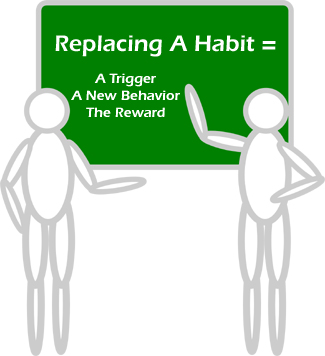 So, here’s this task we have for ourselves. We have a habit, and we want to replace it.
So, here’s this task we have for ourselves. We have a habit, and we want to replace it.
One of the online dictionary’s defines replace as,
“Take the place of” and
“Put back in a previous position.”
I would edit the second definition to be,
“Put in position,”
merely because where the “something” is placed could be in an old or new area of our lives.
REPLACING VS. QUITTING
When it comes to habits, replacing and quitting are like opposite sides of the yin-yang symbol, where opposing forces make the whole.
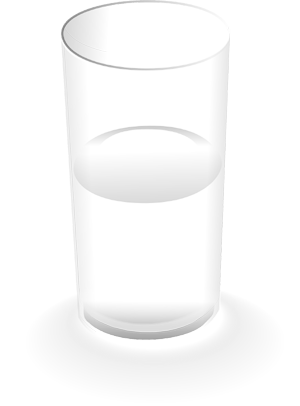 Consider the glass’ being half empty or half full concept. When the glass is full, we think of richness. The empty term, in Western terms, can speak to barrenness, although, in the Eastern way, emptiness is the way to abundance.
Consider the glass’ being half empty or half full concept. When the glass is full, we think of richness. The empty term, in Western terms, can speak to barrenness, although, in the Eastern way, emptiness is the way to abundance.
Deleting the term “quitting,” when it comes to habit change is a freeing experience. So many people are anxiety ridden when they think they have to quit something. Many fewer people are troubled when they think about replacing or doing a new behavior and keeping the attention on that new behavior.
In fact, the idea of focus comes into play. When we focus on quitting our old behavior, our mind is filled with all the old memories that go with the behavior. When we focus on replacing our behavior with the new one, we walk in the new direction, which is where we want to go.
There’s all that talk about keeping the eye on the target, the goal, the ball. It’s true that if we keep focused on the new behavior as if it comes naturally, eventually, with repetition, the replacement behavior will become natural, and we will have a new habit. Or, at least, we will get good at replacing it.
CAUTION: THE BOREDOM TRIGGER
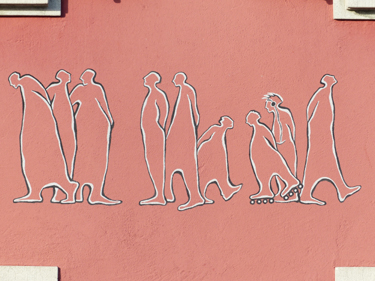 Be careful of the feeling of boredom. It can act as a built-in excuse for doing a certain behavior that is not good for us. We might think that if we had excitement rather than stagnation in our lives, we would not act out the behavior we wanted to change. We might even create the boredom to delude ourselves.
Be careful of the feeling of boredom. It can act as a built-in excuse for doing a certain behavior that is not good for us. We might think that if we had excitement rather than stagnation in our lives, we would not act out the behavior we wanted to change. We might even create the boredom to delude ourselves.
Boredom, in many cases, is the actual trigger that causes our over and over again behavior that becomes a habit. Rather than knowing there are an infinite amount of things we can do to lead full lives, it’s important to pre-plan one or two of them. That way, we will be armed against even the most common cues like boredom.
ACTION STEPS
So, let’s get started and see how it feels.
ACTION STEP 1
1) Pick one thing you wish to “put in position.” This means pick any habit you would like to replace, such as eating desserts or sleeping too much.
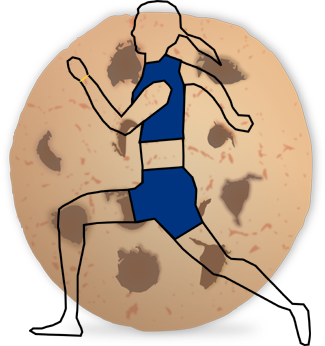 Let’s say we always get the urge to eat dessert. We can change our reaction to this trigger by planning another behavior in its stead, such as going jogging as soon as that urge is felt. This will begin the process of replacement. Repeating this behavior will turn it into a habit. By behaving consistently by jogging and not dessert eating, we will have replaced our old with the new behavior. Although this certainly is quitting acting out the old behavior from the sheer repetition of the act; it’s easier to accomplish by using the concept of “replace.”
Let’s say we always get the urge to eat dessert. We can change our reaction to this trigger by planning another behavior in its stead, such as going jogging as soon as that urge is felt. This will begin the process of replacement. Repeating this behavior will turn it into a habit. By behaving consistently by jogging and not dessert eating, we will have replaced our old with the new behavior. Although this certainly is quitting acting out the old behavior from the sheer repetition of the act; it’s easier to accomplish by using the concept of “replace.”
ACTION STEP 2
2) Keep a record of what time the urge occurs, what time you start the new behavior (like jogging) and how long you do the new behavior and each time this occurs for a week. If this is accomplished for a week, continue the process for another week, another week and another week.
ACTION STEP 3
3) Promise yourself you will not judge whether it is just as difficult to do the new behavior a month later as it was on the first day. This feeling is not important. It just exists and doesn’t work only one way. For some people, it becomes easier with time to be automatic about doing your new behavior. For others, you will have to be deliberate in directing yourself to do your new behavior.
Just keep replacing. Each time you do, it’s OK to give yourself a high five in the mirror.
CONCLUSION
Think about quitting a habit. It reminds me of wrenching something from life. We have to do without which causes pain.
Now think about replacing a habit. Ever more gentle it is, causing some growing pains, yet not attacking our psyche in the same way.
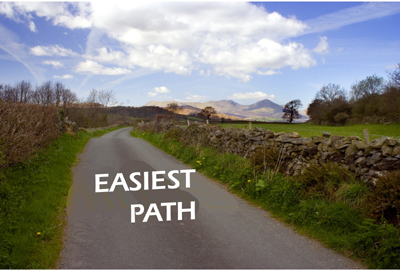 Of course, when we want to do something new in place of some old habit, we want to give ourselves the easiest path to follow. That path involves planning one simple action that will be repeated over and over again. It also requires saying “replace” instead of “quit.”
Of course, when we want to do something new in place of some old habit, we want to give ourselves the easiest path to follow. That path involves planning one simple action that will be repeated over and over again. It also requires saying “replace” instead of “quit.”
Armed with these tools, we have every opportunity to have a pain-free experience of moving from one habit to another.
___
If you wish to share your story, please hit reply in your email program to be contacted.
___
![]()
FEEDBACK
We value your feedback very much. Please leave a comment below.
Please LIKE us on the website and at WarriorsOfWeight on Facebook. Thanks.
![]()
![]()
DIANE GOLD, AUTHOR
Diane Gold, Founder of Warriors of Weight, Turning Habits Into Health, is a mentor in tai chi, kung fu and meditation, a music, fitness and stress expert, dedicated mom, studying plant-based nutrition and habit change.
She believes “replacing a habit” is a more nurturing way of the phrase “quitting a habit.” She says,
“How we are treated by others is really important. How we treat ourselves is crucial.
“We have the opportunity to be nurturing to ourselves. Making it easy for ourselves is one such way to nurture. This includes speaking of ourselves fondly and setting up the user friendliest situations. For habit change, this means using the word ‘replace’ and not ‘quit.’ It’s similar to the difference between exercising on a rocky field or exercising on a flat cushy matted floor. One is easier than the other.
“Be nice to thyself whenever possible. This will facilitate us in any habit change endeavor.”
![]()

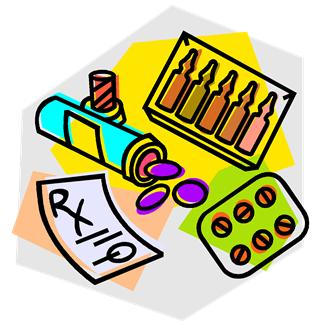 Through the medical model to fix what ails, doctors are schooled in drug therapy. This is super fantastic since drugs are miraculous helpers. But, there are preventive disciplines that have little to do with pharmaceuticals; they teach us how to live and thrive without drugs.
Through the medical model to fix what ails, doctors are schooled in drug therapy. This is super fantastic since drugs are miraculous helpers. But, there are preventive disciplines that have little to do with pharmaceuticals; they teach us how to live and thrive without drugs.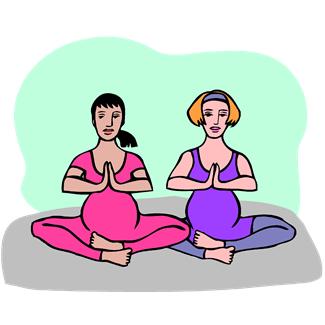
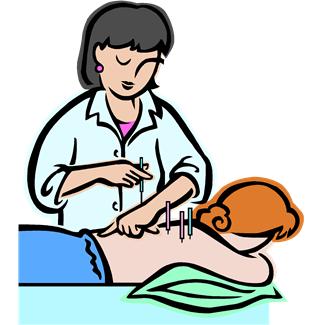
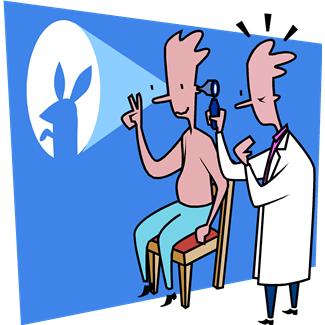 Of course, there are loads of habits we have developed over the years. They are so ingrained, sometimes we can’t identify which are based on learned facts, on nebulous supposition, on familial traditions.
Of course, there are loads of habits we have developed over the years. They are so ingrained, sometimes we can’t identify which are based on learned facts, on nebulous supposition, on familial traditions. 3)
3)





